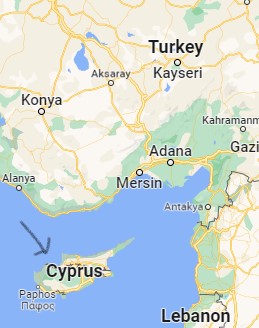 by Post Eschaton Punk Sat Oct 08, 2022 12:54 am
by Post Eschaton Punk Sat Oct 08, 2022 12:54 am
I AM the Beast!
_
There is something about this Nietzsche quote that makes the hair stand up on the back of my neck.
GSBs last post reminded me of a theme I resonate with deeply.
That we are the monsters and the angels.
That they exist paradoxically in us, mostly unconscious.
This is energetic.
It’s electric.
When I first read it, I was smacked across the face.
And I heard in my head, you are one of my dangerous children.
See my other post on my thread for a little more background maybe.
“For one may doubt, first, whether there are any opposites at all, and secondly whether these popular valuations and opposite values on which the metaphysicians put their seal, are not perhaps merely foreground estimates, only provisional perspectives, perhaps even from some nook, perhaps from below, frog perspectives, as it were, to borrow an expression painters use. For all the value that the true, the truthful, the selfless may deserve, it would still be possible that a higher and more fundamental value for life might have to be ascribed to deception, selfishness, and lust. It might even be possible that what constitutes the value of these good and revered things is precisely that they are insidiously related, tied to, and involved with these wicked, seemingly opposite things — maybe even one with them in essence.
Maybe!
But who has the will to concern himself with such dangerous maybes? For that, one really has to wait for the advent of a new species of philosophers, such as have somehow another and converse taste and propensity from those we have known so far — philosophers of the dangerous “maybe” in every sense.
And in all seriousness: I see such new philosophers coming up.”
(Beyond Good and Evil: Prelude to a Philosophy of the Future, pp. 10–1)
This passage is from the first chapter titled ‘On the Prejudices of the Philosophers’. Here, Nietzsche is critiquing philosophers for not being philosophical enough. He argues that philosophers often rely on basic prejudices, presuppositions, values and binary oppositions that go unchallenged and unquestioned. (Dan hates to be challenged and is full of his own bias) A “dangerous maybe” or a maybe that’s dangerous is the act of questioning a fundamental presupposition. A dangerous maybe is a dangerous question. This means “dangerous maybe” is the name of a radical form of philosophizing that challenges all of our foundational assumptions.
I risked everything to free myself from this prison world of desire and lust, but I was not alone, nor did it for myself only.
You know how you free yourself, you enjoy what is, what you have and cease looking for tomorrow to make things better or to have the better thing.
This is the kind of philosophy I practice. Both Nietzsche and Rage Against the Machine “know the power of a question” and I also want to know this power as much as I can. The world is broken and the way forward will be found in a dangerous maybe.
Are you living dangerously?
—
Tonight I feel Being speaking very clearly to me.
It is not nothing.
Inside the functionality of our everydayness, we cannot encounter beings as a whole, but on rare occasions there will be a rupture in this order, a tear in this homogeneous fabric. These ruptures necessitate what Deleuze called the Encounter in “Difference and Repetition”, that is, an experience so intense that it disrupts our mode of access to the world. This is similar to the Lacanian notion of the Real bursting through and shattering the Symbolic. However, the larval form of these concepts of disruption can be located in Heidegger’s description of unreadiness-to-hand in Being and Time. But it must be stressed that not all encounters with beings as such are necessarily traumatic — in fact, it can be downright joyful.
Seeing the stars through the James Webb telescope.
Watching your Garden and life grow and thrive.
Seeing atoms magnified.
A beautiful sunset.
Geometry in nature.
Experiencing the birth of your child.
I have had the Encounter.
I lacked the symbols to express the experience.
I am sure many experiencers of the Phenomena can relate.
Dan can I’m sure.
We try to use the symbols we know to make sense of these ruptures in the repetitious.
We make them religious maybe.
But that simply won’t due.
In stepping outside of our everyday familiarity we are in a position to recognize the difference between beings as such and nothing. This is an opportunity to ask the question:
“Why are there beings at all instead of nothing?”
And this question can, then, give way to the question concerning Being itself (Sein selbst). What’s important to know is that this experience of Being itself, even if not followed up with a proper thinking through of itself, can inspire a person to think along new and revolutionary paths.
How so?
Because it reveals to a person that there is a vast outside that always escapes the parameters of familiarity and all of its derivatives (doxa, knowledge, philosophy, the big Other, myth, objective spirit, worldhood, science, religion, politics, tradition, Wissenschaft, common sense).
The experience of Being is the unforgetting of the Prior. Polt words it like this, “To recollect the givenness of the given is not to relive an old experience of something, but to become aware of a sense of the whole that must be in place before anything can be experienced” (The Emergency of Being, p. 27). To be Dasein is to implicitly or explicitly have a sense of the whole. It means to have a sense of your own there within the whole there.
This is the bridge I didn’t want to cross I think Dan was pointing to.
Becoming aware and unforgetting the whole changes you forever.
Opens you up.
Brings you joy.
The loss of old myths is terrifying for some.
Painful.
But there is something so much greater than the small set of things we are familiar with.
—
Heidegger sought to give a phenomenologically accurate description of the self in Being and Time, i.e., he wanted to describe what the self is really like (what it's really like to be a person).
Heidegger showed the self to exist as Being-in-the-world. The self actually depends on the world. The world is the condition of selfhood. Descartes simply failed to recognize that human beings don't exist in the way substances do, and in failing to see this he reduced our Being to substantiality.
Now, for me to be the "I" ("I" is put in quotation marks here to signify that the "I" isn't a substance) that "I" am, there must also be other human beings, equipment, etc., i.e., a world. The self that I am is ontologically entangled with the relations I have with other people and the equipment I use.
To say that the world is an illusion is to say that I am an illusion. If I exist, then the world exists. If the world is an illusion, then I am an illusion.
Once a person has seen the worldly character of the "self", then one understands that human beings have their Being-in-the-world.


 Personalism 101
Personalism 101 
 Re: Personalism 101
Re: Personalism 101 
 Re: Personalism 101
Re: Personalism 101 
 Re: Personalism 101
Re: Personalism 101 
 Re: Personalism 101
Re: Personalism 101 
 Re: Personalism 101
Re: Personalism 101 
 Re: Personalism 101
Re: Personalism 101 
 Re: Personalism 101
Re: Personalism 101 
 Re: Personalism 101
Re: Personalism 101 
 Re: Personalism 101
Re: Personalism 101 

 hazmat suit, for example.
hazmat suit, for example.

 Re: Personalism 101
Re: Personalism 101 
 Re: Personalism 101
Re: Personalism 101 
 Re: Personalism 101
Re: Personalism 101 
 Re: Personalism 101
Re: Personalism 101 

 Re: Personalism 101
Re: Personalism 101 
 Re: Personalism 101
Re: Personalism 101 

 Re: Personalism 101
Re: Personalism 101 
 Re: Personalism 101
Re: Personalism 101 
 Re: Personalism 101
Re: Personalism 101 
 Re: Personalism 101
Re: Personalism 101 
 Re: Personalism 101
Re: Personalism 101 


 Re: Personalism 101
Re: Personalism 101 
 Re: Personalism 101
Re: Personalism 101 
 Re: Personalism 101
Re: Personalism 101 
 Re: Personalism 101
Re: Personalism 101 
 Re: Personalism 101
Re: Personalism 101
» Why are we here?
» The scariest character in all fiction
» WRATH OF THE GODS/TITANS
» Uanon's Majikal Misery Tour "it's all smiles on the magic school bus"
» What Music Are You Listening To ?
» Livin Your Best Life
» OMF STATE OF THE UNION
» Baudrillardian hauntology - what are some haunting truths to our reality?